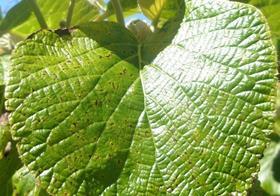
The number of headlines in the New Zealand and industry media for the past few weeks about the use of streptomycin to control Pseudomonas syringae pv actinidiae (Psa) in the country’s kiwifruit industry have outweighed the actual extent of the issue, according to single-desk marketer Zespri.
The last few months has seen a small but vocal group criticise the approval for the antibiotic’s use in New Zealand.
But Zespri spokesman David Courtney told Fruitnet.com the actual use of streptomycin, in this case the product KeyStrepto, is much more limited than the media coverage might suggest.
“We’ve `only` had about 120 growers apply to use streptomycin, but there’s a significant number more in the Bay of Plenty that are eligible to use it,” he explained. “Only 60-odd growers have been given permission to use it so far.”
Initial concerns by the beekeeping industry seem to have dissipated, however, with the formulation of a rigorous spray plan, which has apparently been described by apiary experts at Plant & Food Research as international best practice.
“The kiwifruit industry is working very closely with the beekeeping industry,” Mr Courtney said.
“`Things were` a little bit untidy when the announcement came out; the proper consultation process was being worked through, but the bee industry learnt about this before that process was completed, and the beekeepers were concerned.
“But a working group was formed between ourselves and KVH `Kiwifruit Vine Health` bee specialists and the beekeeping industry as well, and that’s worked through some very tight protocols. The majority of them are quite happy with how things are going now, and we’re having ongoing meetings about it.”
The kiwifruit industry it set to come together next week for Zespri’s Momentum Kiwifruit Industry Conference 2011. The event’s focus this year will be on Psa.
Running Thursday and Friday next week, the first day of the conference will see a number of international horticulture industry figures present their experience with diseases that have faced their own sectors.
“The strong thrust of that first day is listening to other people’s experiences, seeing that other industries have faced similar problems and how they’ve dealt with them,” said Mr Courtney.
The second day will take a more technical focus, exploring potential genetic, chemical and management controls for Psa.



